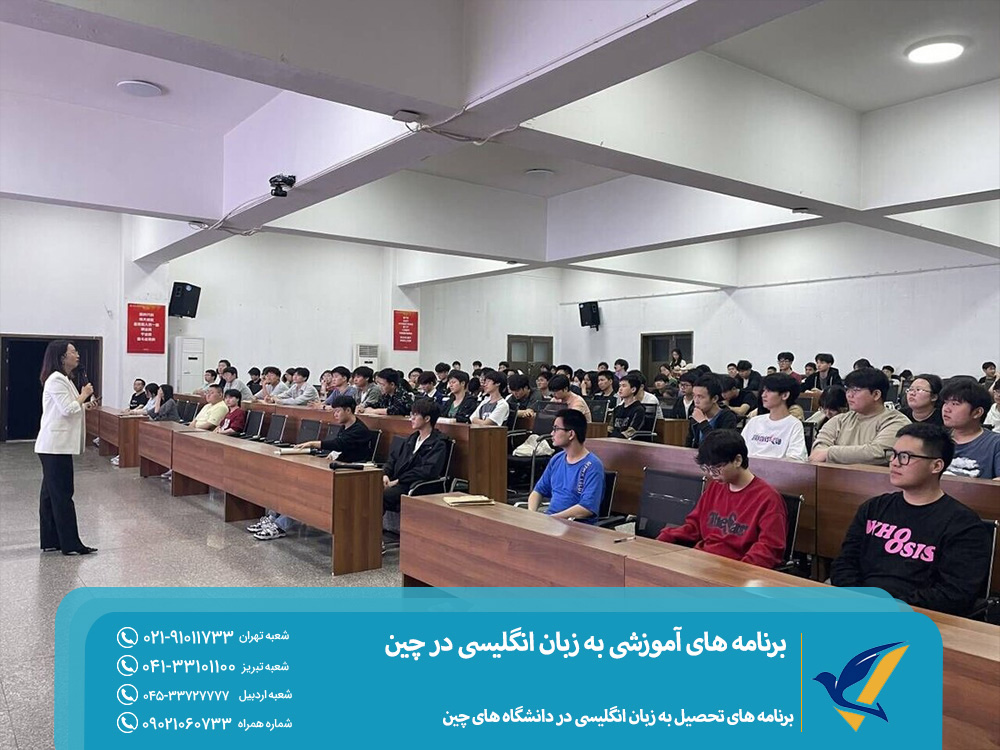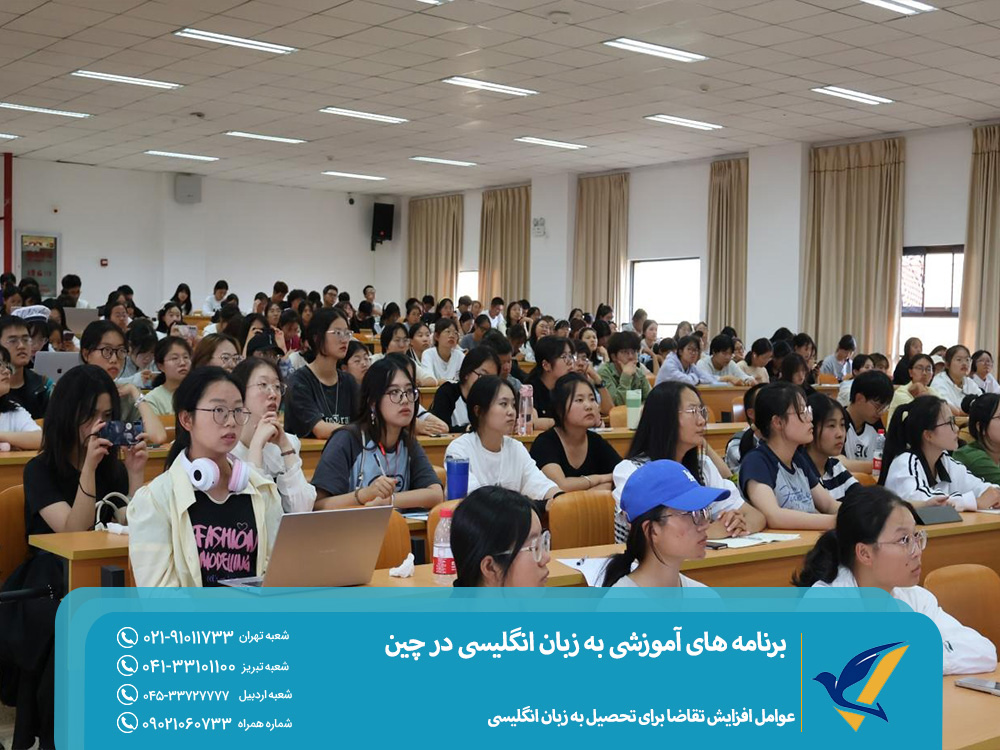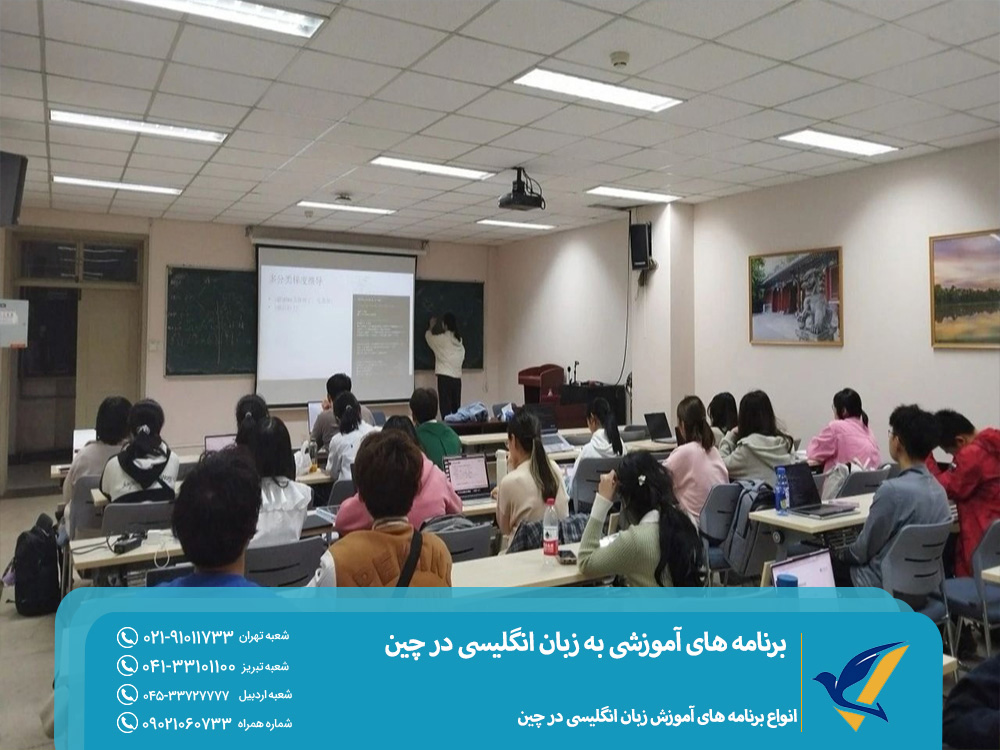The Rise of English-Taught Programs in China
In recent years, China has expanded its English-taught academic programs as part of its global outreach efforts. As the country continues to enhance its international influence, opportunities for studying in China in English have grown significantly. The ability to communicate in English has become increasingly crucial for individuals looking to advance their careers, engage in international trade, and foster cross-cultural understanding.
This article explores the key factors driving the expansion of English-language education in China and the various academic programs available for international students. Stay with Elm Vira until the end of this article to learn more.
Historical Background of English-Language Education in China
The roots of English-language education in China can be traced back to the late 19th and early 20th centuries during the Qing Dynasty. However, it was not until the late 20th century—particularly after the economic reforms initiated by Deng Xiaoping in the late 1970s—that English gained recognition as an essential skill for economic development and modernization.
A major milestone in China’s English education framework was the introduction of the National English Curriculum in 1986 for primary and secondary schools, highlighting the growing importance of English language programs in the country’s educational system.

English-Taught Study Programs at Chinese Universities
International students seeking to pursue undergraduate and postgraduate degrees in China in English do not need proficiency in Chinese. The expansion of English-taught programs in China has attracted thousands of students worldwide, making the country a preferred destination for higher education.
There are two main ways to enroll in English-taught programs in China:
1. English-taught programs at Local Chinese Universities
Many local Chinese universities offer English-language programs exclusively designed for international students. These programs allow foreign students to study in China without needing to learn Chinese. However, it is important to note that international students in these programs do not share classes with Chinese students, limiting opportunities for cultural immersion.
If you are interested in engaging with local culture and interacting with Chinese students, this option may not be the best fit for you.
2. English-Taught Programs at Foreign Universities in China
Several foreign universities have established campuses in China, offering internationally recognized degree programs. These institutions follow global academic standards, and graduates receive diplomas from the affiliated foreign universities.
The English-language campuses of these universities have been operating in China for years. Unlike local universities, they enroll both Chinese and international students. Chinese students can gain admission to these institutions by passing the National College Entrance Examination (Gaokao).
One key advantage of studying at foreign universities in China is that students attend classes with Chinese peers, providing a richer cultural experience and a chance to better understand Chinese traditions and customs.

Factors Driving the Growing Demand for English-Taught Education in China
Several key factors contribute to the increasing demand for English-language education in China. Below are some of the most important reasons behind this trend:
1. Globalization
As China continues to integrate into the global economy, proficiency in English has become essential for both individuals and businesses. Many companies seeking to expand internationally require employees who can navigate English-speaking markets and engage with foreign partners. As a result, English fluency has become a highly valuable skill in China’s job market, driving the demand for English-taught education.
2. Educational Reforms
The Chinese government recognizes the importance of English proficiency and has implemented various reforms to enhance English-language education. The Ministry of Education has made English a core subject in the national curriculum, leading to increased investment in English-taught programs at both schools and universities. This has further strengthened China’s position as a destination for international students.
3. Technological Advancements
The rise of technology has transformed language learning, making it more accessible and efficient. Online platforms, mobile applications, and interactive learning tools have allowed students to improve their English skills at their own pace. This accessibility has fueled interest in English-taught programs in China, as learners seek flexible and innovative ways to enhance their language abilities.
4. Cultural Exchange Opportunities
With the expansion of international exchange programs, an increasing number of Chinese students are looking for opportunities to study abroad or participate in academic exchange programs. English proficiency is often a prerequisite for these programs, encouraging students to pursue English-language education. Additionally, the presence of international students in China has fostered a more multicultural academic environment, further driving interest in English-taught programs.

Top Universities for English-Taught Programs in China
In recent years, many international students have chosen China as their ideal study destination. A significant number of universities in China now offer English-taught programs, making it an attractive choice for international students. This development in Chinese universities is one of the most important aspects of English-language education in the country. By enrolling in these programs, students can also familiarize themselves with the Chinese language and culture by taking Chinese language courses.
Here are some of the top universities in China offering programs in English:
1. Tsinghua University
Located in Beijing, Tsinghua University is one of China’s most prestigious and internationally recognized universities. It ranks highly among both national and global universities. Founded in 1911 as the Imperial Tsinghua College, it has since evolved into one of the most popular choices for international students in China.
Tsinghua University offers English-taught programs at both the undergraduate and graduate levels, attracting students from all over the world. The university provides around 80 undergraduate programs, most of which are four years long and are taught in both English and Chinese (except for architecture and sculpture). At the graduate level, students can choose from 30 programs offered in English, including 22 master’s programs and 8 doctoral programs.

2. Tsinghua University: English-Taught Programs in China
Peking University is one of the most prestigious and reputable universities in China, hosting thousands of international students due to its offering of English-taught programs. With extensive educational and residential facilities, as well as having the largest library in Asia, Peking University has gained considerable fame. The university comprises six faculties and offers numerous undergraduate and graduate programs.
It is important to note that the undergraduate programs at Peking University have a 4-year duration. While students are not required to submit a language proficiency certificate, they must demonstrate adequate proficiency in either English or Chinese. If they do not meet the required level, they must enroll in language courses.
3. Shanghai Jiao Tong University
Shanghai Jiao Tong University, established in 1896, is one of the leading higher education institutions in China and a distinguished global university. It has attracted many international students by offering English-taught programs. Managed directly by the Ministry of Education of China, it operates across five campuses.
This university has trained some of China’s top scientists for over a century and has hosted thousands of international students. Most of the main programs in engineering are taught in English and French. Other English-language programs at this university include fields such as Computer Science, Automation, Information Engineering, and Mechanical Engineering.
4. University of Science and Technology of China (USTC)
Founded in 1958 by the Chinese Academy of Sciences in Beijing, and later relocated to Hefei, the University of Science and Technology of China (USTC) also provides English-taught programs for international students. The primary goal behind establishing the university was to address the scientific and technological needs of China and increase its international competitiveness.
Most of the English-taught programs at USTC are offered at the graduate level, with about 9 master’s programs and all doctoral programs being conducted in English. Although undergraduate programs are also available, most of the 35 undergraduate programs are taught in Chinese, with some courses offered in both English and Chinese.

Types of English Language Programs in China
The landscape of English-taught programs in China is diverse, offering various options for different age groups and skill levels. Some of the most important English-language programs in China include:
1. Primary and Secondary School Programs
English is a compulsory subject in primary and secondary schools across China. Schools typically use a combination of traditional teaching methods and modern resources to engage students. In these programs, the focus is usually on developing reading, writing, listening, and speaking skills, with a strong emphasis on grammar and vocabulary.
2. University Programs
Higher education institutions in China also offer specialized English programs, including degrees in English language and literature, applied linguistics, and TESOL (Teaching English to Speakers of Other Languages). These programs are designed to equip students with advanced language skills and prepare them for careers in education, translation, and international business.
3. Private Language Schools
The rise of private language schools has significantly advanced English language education. These institutions offer specialized courses for children, teenagers, and adults, often employing native English speakers as instructors. Private language schools provide flexible and immersive learning experiences, attracting students who seek personalized attention and a more interactive learning environment.

4. Online Learning Platforms
It’s important to note that the rise of online learning platforms has transformed the way English is taught and learned in China. Platforms such as VIPKid, iTalki, and Cambly connect students with native English speakers for one-on-one lessons, allowing learners to practice their speaking skills and receive real-time feedback. This method of learning has gained significant popularity, especially among professionals and students who are busy and seeking to study in China in English.
Conclusion
As discussed, deciding to study in another country, especially one with a different language, can be a challenging and sometimes discouraging journey. Ultimately, it is up to you to decide whether you’re ready to begin your student life in a new part of the world. However, if you’re determined to pursue your education in China in English, rest assured that with the variety of English-taught programs in China, you’ll have an exceptional experience.
All of this requires a passion for exploring the world and gaining new experiences. For more information about study migration programs to China and to receive a free consultation, feel free to contact the experts at Elm Vira Immigration Institute. Our team is committed to guiding you in the best possible way throughout your journey.
میانگین امتیازات ۵ از ۵
از مجموع ۳ رای